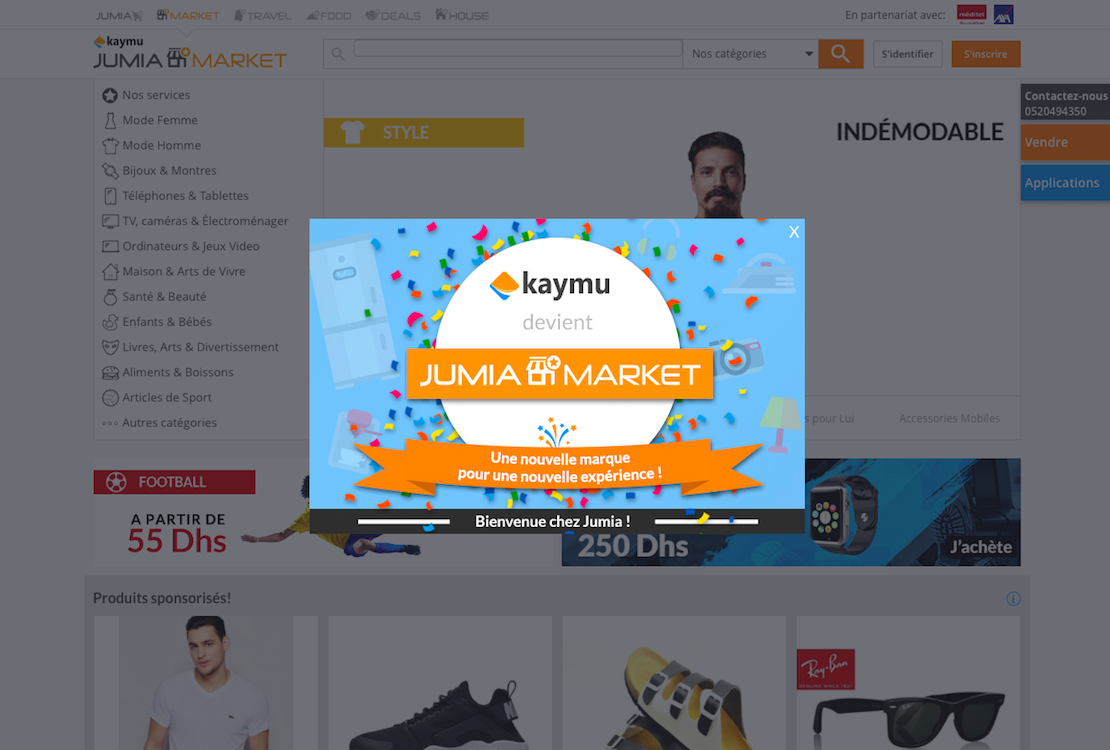AIG becomes Jumia, but is a rebrand a good idea?

Few internet services have made as much noise as Africa Internet Group (AIG), and now it’s seeking to make more with a major rebrand.
The latest change came last week when the group underwent a massive rebrand, renaming itself Jumia Group after their most famous service, Jumia - the Amazon or Alibaba of Africa.
Each of their nine services took a new Jumia-based name, but will not be merging together or with the parent, remaining as independent entities.

This one-brand strategy aims to bring more visibility to the whole of Jumia Group’s companies, to strengthen name recognition, and to get current clients using more of the group’s services. A company statement said that in Morocco, only 8 percent of Jumia Group’s clients use all the services available in the country.
Jumia Group CEO Jeremy Hodara told CNBC they'd been planning for the change for "a long time".
Is change a good idea?
Choosing Jumia as a name was natural as the website is the most important business in the group and has high name-recognition in Africa.
It marks a transition away from the group of brands concept towards a more unified commercial identity for its clutch of individual startups. But while shifting to a single name can create greater cohesion and a stronger brand in the long term, it does come with a cost: if the other brands also had strong name recognition that could harm the overall business unit, as we’ll touch on below.
“A brand is only useful to the business when it helps it meet its ambitions and objectives. Any rebrand or repositioning exercise aims to help the brand further grow into new markets, speak to new audiences, or build credibility in new areas of expertise,” Seigel and Gale strategy director Ahmad Badr wrote on Wallblog.
Marek Zmyslowski, the founder and ex-CEO of Jovago (now Jumia Travel), suggested to Techcabel the variety of brand names had harmed the broader business.
“This [move] means so many things. Failure of concept of raising together funds for different businesses. Failure of the whole business strategy that was pushed for the last couple years. Failure of launching ventures without real founders that have the power of making decisions,” he said.
Making it work in new markets
Rebranding will be easier in a country like Morocco where Jumia is well known, but the task will be harder in Tunisia where it doesn’t exist.
A McKinsey study in 1997 found that phasing out an old brand worked well when the alternative brand had a large group of loyal users, and also worked better when done slowly.
“Quickly changing to one brand name is a more demanding strategy, and one that few companies execute successfully. It is appropriate when companies need to move urgently because competitors are rapidly building global power or intensifying their advertising and promotion spending, thereby raising the cost of maintaining brands,” it said.
Further, the study found that only one in five brand consolidations succeeded, in terms of gaining more market share.
Slowly slowly
Alexandre Berriche, head of Jumia (ex-Kaymu) in Tunisia, told Wamda they would use a media campaign, communication with current users and sellers, and website transition to get the message across. The Kaymu.tn website will redirect to the new Jumia.tn website and the old and new logos will remain on the site for a while.
“This will work out rather naturally,” said Berriche. “Those last two days, we haven’t seen any change in our sales numbers. This didn’t have any negative impact.”
In Tunisia, Jumia is moving slowly. Contrary to other countries, the Kaymu website will take the name Jumia instead of Jumia Market, a sign that the launch of the ‘historic Jumia service’ won’t happen in Tunisia yet.
“As we’re in a country where there is no Jumia, the historic Jumia, we go more and more towards brands. We’re progressively operating both roles, both Jumia Market and Jumia, by having key accounts on our website,” said Berriche.
Not all Jumia services have been launched in all countries the group operates in. Here’s the list of businesses affected in North Africa:
-
Jumia - multi-brand retail store: Algeria, Morocco, Egypt
-
Jumia (Kaymu) – community marketplace: Tunisia
-
Jumia Market (Kaymu) – community marketplace: Algeria, Morocco
-
Jumia Travel (Jovago) – travel booking: available to all countries
-
Jumia Food (Hellofood) – meal delivery: Algeria, Morocco
-
Jumia Deals (Vendito) – classified: Algeria, Morocco, Tunisia
-
Jumia House (Lamudi) – real-estate platform: Algeria, Morocco, Tunisia
- Jumia Services (AIG X) – logistics : Algeria, Morocco, Tunisia, Egypt


